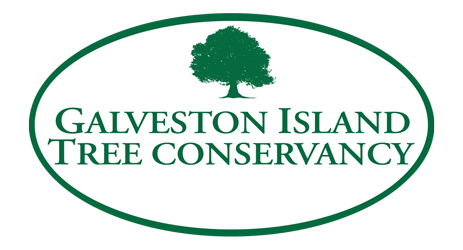Living Christmas Tree
Galveston’s Living “Christmas Trees” (Norfolk Island Pine)
Holiday time is upon us and Christmas trees are showing up everywhere. If you enjoy a tree in your home the choices are plentiful: biological or manufactured, harvested or living, unadorned or already decorated. And of course there is the tree packed away in the attic. Or the one in the outdoor planter that you haul inside each December if it is not too large.
A tree that often shows up on office desks and in homes is the Norfolk Island Pine, Araucaria heterophylla. This small living table-top Christmas tree often comes complete with bows and bulbs, or larger and undecorated from a plant nursery. You may know it also as a towering evergreen seen growing around Galveston, recognizable by its upright growth habit and symmetrical pyramidal shape and finely textured foliage on branches emerging gracefully from the trunk. It was one of the surprise Ike survivors that revealed itself across our skyline after we lost so many of our other trees.
This tree loves Galveston. It enjoys a sunny location and offers very high heat tolerance and moderate water requirements. This rapid grower seems to thrive on our salt spray and can handle occasional storm winds and sand blasting. Norfolk Island pine is not particular about soil and tolerates even very acid as well as salty beach side soils.
This half-hardy tropical plant does tend to sustain damage at temperatures below freezing and thus prefers a protected environment. Many of Galveston’s Norfolks have experienced a near-miraculous recovery over the last couple of years. Multiple freezes in January 2010 and February 2011 (with a low of 25 degrees), followed by severe drought in 2011, weakened the trees and caused a number of them to appear dead. However, many of those left in place have returned to almost their former glory. I have a large backyard specimen for which I had almost given up hope in the summer of 2011, when I noticed tiny sprigs of green emerging from the trunk near dead branches. I gave it water and time and sure enough significant growth sprouted. It now looks as good as new. UPDATE: the freeze in January 2018 which ranged from 25 degrees to 32 degrees over a 3 day period damaged/killed many of our Norfolk Island Pines. However, many of those that were somewhat sheltered from the north winds survived.
Not a true pine, the Norfolk is a member of the Araucariaceae family that includes several other interesting ornamental trees including the bunya-bunya tree (A. bidwillii) and the monkey puzzle tree (A. araucana). In its native habitat--Norfolk Island near Australia in the South Pacific--this tiny plant is a forest giant that can tower to 200 feet. Ours seem to stay under 50 feet.
So if you have a large expanse of lawn or even an empty corner in your yard, Norfolk Island Pine can be a spectacular specimen plant. This tough tree can add height to your landscape design, frame entries, and create attractive groves when planted in groupings. The hardy Norfolk should flourish in containers--or the ground--even if you lack that green thumb.
Hurricane Ike caused the loss of 40,000 trees on Galveston Island. The Galveston Island Tree Conservancy was formed to address that loss and to date has replaced almost 11,000 through grant-funded plantings and giveaways, with more planned. “Tree Stories” is an ongoing series of articles intended to bring attention to outstanding Island tree, tree care, and tree issues. If you have or know of a special tree on Galveston Island that should be highlighted, please email treesforgalveston@yahoo.com. Margaret Canavan is a Galveston resident, a Galveston County Master Gardener, and a member of the Conservancy Board.

